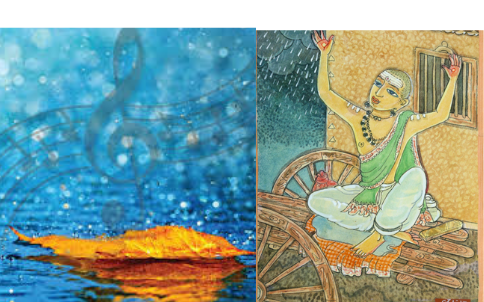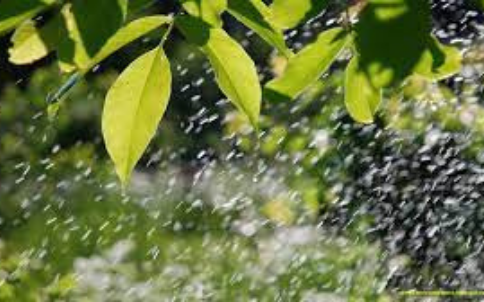SreeRagam 25
Anandamritakarshini Amritavarshini
AnandamritakarshiniAmritavarshini
HaradipujiteShiveBhavani…..
A compostion in Amritavarshini raga, Anandamritakarshini is an invigorating kriti by Deekshitar. This kriti has an interesting fable associated with it.
Also read: VenkatachalaNilayamVaikuntaPuravasam/PankajaNetramParamapavitram/SankhuChakradhara ChinmayaRoopam……
Deekshitar visited Ettaipalam village on the plea of the locals who suffered miserably because of a famine. Crops were destroyed and they were left to famish. Deekshitar was moved by their plight and spontaneously composed this kriti as an ardent appeal to Goddess Devi. Divine mother showered her grace in the form of incessant rains. People of the area were overjoyed with the benevolence of Devi.
Mastery in rhyme, Alliteration in the adi and antyaprasa, conspicuous aspects of Deekshitar’s compositions enhance the lyrical beauty of this kriti..
Also read: Balakanakamaya chela….
As per another legend, Ravana played Amritavarshini on veena to pacify the flames engulfing the city of Lanka, when Hanuman set fire with his tail.

Amritavarshini literally means, the flow of the immortal nectar, Amrita. It has become synonymous with monsoon rains in the realm of ragas. It is a janya raga of the 65th Melakarta raga MechaKalyani and can also be considered as a janya of the 66th Melakarta, Chitrambari, as Amritavarshini raga does not have Da, Daivatam.
Also read: Adigo Alladigo Sri Harivasamu
One of the few ragas that remind us of the monsoon, Amritavarshini raga has a unique disposition in classical music. The appealing swaras create an ambience of positivity and vigour. This raga, though not considered for an elaborate exposition, is usually interspersed in the segment of ragam, tanam and pallavi in a concert.
Also read: Sadinchene O Manasa….
Malhar is the Hindustani Classica music raga equivalent of Amritavarshini. Malhar is predominantly barkarutu (monsoon) raga.
Structure
AarohanaS G3 M2 P N3 S
AvarohanaS N3 P M2 G3 S
Antara Gandharam, PratiMadhyamam and KakaliNishadam are the swaras. It is an audava (pentatonic) raga. The symmetrical swaras lend an esthetic appeal to the raga.
Among the compositions, Deekshitar’sAnandamritavarshini and MuthaihBhagavatar’s enchanting ‘Sudhamayee” are quite popular.
Other compositions include
Sarasiruhanayane of Thyagaraja (musicologists claim that it is misattributed)
Sarasijaasani – MuthuswamiDikshitar
Vani ParamaKalyani -VadirajaTirtha
Ennai Nee Maravate -DandapaniDesikar
SundaraMuruthy – PurandaraDasa
AadiVaruvaiGuhane – Punitasri
Siddhi Nayakena – M. Balamuralikrishna
SthirataNahiNahi Re -SadashivaBrahmendra
AadinateppadiyoNadanam, anonymous
Film music
Amritavarshini and Malhar ragas are adapted in our film music extensively.
Telugu
Anatineeyara – Swati Kiranam
Eegaali, eenela – Sirivennela
Kurisenuvirijallule – Gharshana
ChaitramuKusumanjali – Anandabhairavi
Hindi
Baraso Re – Tansen
DukhaBhare Din Bite Re Bhaiya – Mother India
LapakJhapak – Boot polish
As mentioned in the earlier articles, in film music a raga is not used in its authentic form. Minor variations and alterations are created to induce a fresh appeal to the tune.
Also read: Nagumomuganaleni…





Thrimurthies of karnatak music sriThyarajasmami ,SriSuamasastri and Sri Mutthuswami deekshitar
They were philosphers and devotees and vageyakaras ,Music got
the status of a religion and the composers revered as saints and the music became fine way to Bhagavadaradhana and the scince of realisation .